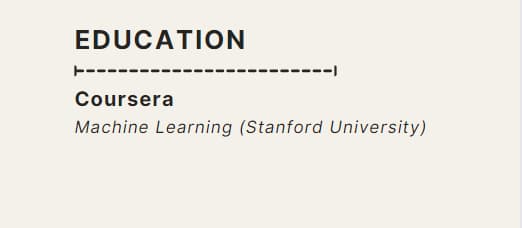Nursing requires devotion and strenuous effort. It’s reasonable to ask how essential your GPA is while applying for nursing jobs, given the strong demand.
According to this article by S. Bronson, participants averaged a 3.36 GPA in their last year of bachelor nursing.
In this essay, I’ll discuss if nursing companies consider GPA, why they should, and the skills needed for success. Let’s examine nursing education and credentials.
Key Takeaways:
- Employers assess GPA, education, clinical experience, certifications, and personal attributes.
- Strong GPAs can improve career prospects, especially for recent grads, and may be necessary for additional study.
- Nursing companies emphasize experience, communication, teamwork, empathy, adaptability, and critical thinking.
- Develop the talents and attributes nursing employers value and pursue continuous education and professional development.
The Role of GPA in Nursing Education
- Importance of GPA During Nursing School
A high GPA in nursing school is crucial for scholarships, internships, and academic accolades. High grades show your dedication to studying and your ability to understand complex topics, which is essential in nursing.
- The Relationship Between GPA and Clinical Performance
A high GPA may indicate academic skill but only ensures clinical success. However, research has linked intellectual accomplishment to clinical success. Good grades help you learn clinical skills.
After reading this article published in the Medical Teacher in 2016, you can come to the conclusion that pre-clinical GPA substantially predicts clinical success in medical students.
- Requirements for Nursing School Graduation and Licensure
Most nursing schools need a minimum GPA to graduate. You may need a good GPA to pass the NCLEX, a critical step in becoming a nurse.
Do Nursing Employers Look at GPA?
Nursing hiring factor: Employers consider education, clinical experience, credentials, and personality when recruiting nurses. Employers examine various factors, including GPA, in the initial screening phase.
The Role of GPA in the Initial Screening Process
During the initial screening, some businesses may utilize GPA to exclude candidates. However, many firms value relevant experience and abilities more than GPA.
Other Employer-Valued Skills and Experiences
Nursing companies recognize certificates, clinical rotations, and volunteer work. These experiences may overshadow your GPA in the employment process.
While working to ensure your GPA appeals to nursing employers, you might be contemplating a career switch.
How Nursing Practitioners’ GPA May Impact Their Career
GPA does not predict nursing career success, although it may affect job prospects, especially for new graduates. Some jobs need a minimum or tiebreaker GPA.
- Maintaining a Good GPA for College and Career
Maintaining a high GPA is crucial if you’re considering a nursing master’s or doctorate degree. High GPAs can help you get into graduate school and get scholarships.
- Nursing Continuing Education and Professional Development
Maintaining best practices and patient care advances in nursing requires ongoing learning.
Continuing education and professional growth can help you improve, outweighing your original GPA.
Tips for Nursing Students to Improve and Maintain Their GPA
Academic Success Strategies
Time management, active listening, and lecture note-taking will help you retain your GPA. Study groups, tutors, and internet tools can also assist you in learning.
Clinician-Student Balance
Clinical experience and academics might conflict. Set goals, prioritize your calendar, and make time for academic and practical learning to succeed.
Also read: How to write an application letter to a nursing school
Requesting Faculty and Peer Assistance
Are you academically struggling? Ask instructors and peers for help. They can guide, support, and motivate you in nursing school.
The Bigger Picture: Qualities and Skills That Matter Most to Nursing Employers
Employers value nurses with clinical expertise and patient care. Clinical rotations and internships boost your employment marketability.
- Collaboration and Teamwork
Successful nurses communicate and collaborate. These talents can make you more appealing to employers in interviews and on your CV.
Employers respect caring nurses who put patients first. Regardless of GPA, these traits can help you succeed in nursing.
- Critical Thinking Adaptability
Nurses must adapt and think critically. These talents can boost your employment and career prospects.
Verdict
In conclusion, your GPA might affect your nursing career, but employers examine several aspects.
Practical experience, credentials, and personal attributes like communication, cooperation, and empathy typically outweigh GPA.
To succeed in this exciting sector, you must develop the skills and attributes nursing employers value and pursue further education and professional development.
If you’re a nurse questioning the value of your GPA, it might be time to also consider the quality of your CV. In the UK, there are top-tier services dedicated to delivering the best CV writing service in the UK. Such a service might just be the key to enhancing your career trajectory.
FAQ
Do you put a GPA on your nursing resume?
Your nursing resume GPA is optional. Showcase your academic achievements if you have a good GPA or are a new graduate with little experience.
You should ask a professional for assistance if you need help or advice for your nursing resume.
Does GPA matter for jobs in Canada?
In Canada, GPA requirements vary by industry and profession, although, like in the US, experience and abilities are frequently more significant.
What a nursing resume should look like?
A nursing CV should be well-organized and brief, showcasing your education, clinical experiences, certifications, and valuable communication, collaboration, and empathy abilities.
What should a nursing student put on a resume?
Nursing students should list their program, clinical rotations, volunteer work, and applicable qualifications, abilities, and experience on their CVs.
How do I make my nursing resume stand out?
Highlight your unique experiences, abilities, and achievements to make your nursing CV stand out. Use powerful action verbs to explain your experiences and tailor your CV to the job description.




